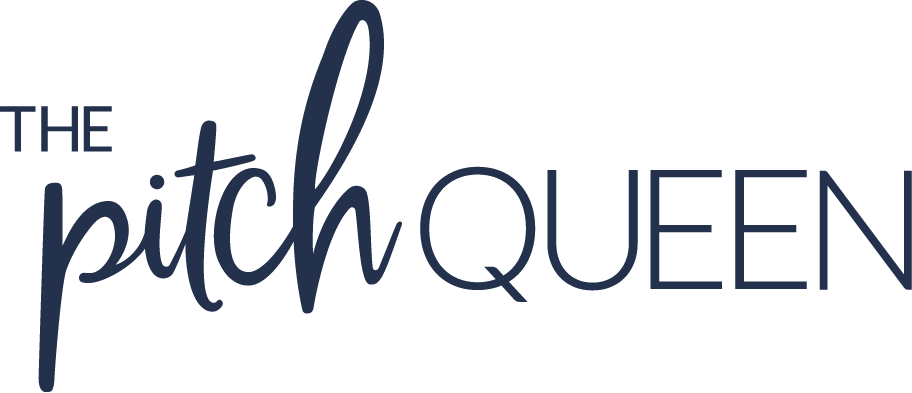
Value can mean different things to different people, and proving your value can be difficult. Doubling your prices. Raising your rates. The thought alone can give you a lump in the throat and a clench in your chest.
But what if it were as easy as just ASKING for more money?
I talk a LOT about knowing your value and asking for what you’re worth. That begs the question, though:
What exactly IS value? How do you know that what you provide is “worth it,” and according to WHOM?
It’s creates the kind of confusion which makes it feel even harder to prove yourself to prospects, let alone raising your rates with anything resembling confidence.
Trust me, I’ve lowballed myself a few times over the years because I didn’t get the true meaning of value. And my friend and colleague, also a rockstar sales consultant Shameca Tankerson, is right there with me.
Not too long ago, Shameca shared a story with me. She recalled a time her clients were getting kick-ass results, and she was building a tribe of raving fans. But there was just one small problem.
At the time, her consulting packages were $5,000 for six months. And she had this nagging feeling that her clients were getting a little bit too much of a bargain.
One day, she knew that it was time just to bite the bullet and double her rates. Easier said than done, of course.
She was on a sales call with a new prospect, and it was time to own up to what she wanted to charge. But the negative self-talk was at a fever pitch.
“I was thinking that this person was gonna be like ‘NO way. You charge too much. Who do you think you are? You’re not Oprah!’ I had this whole story going on in my head about what was going to happen,” Shameca shared.
Nonetheless, she got the words out. The investment for six months would be $10,000.
At that moment, her prospect took a deep breath, then said something astonishing.
“That’s all?”
After all that worry, all of those stories in her head, and all of that undercutting her value, the client agreed to the investment on the table. And without hesitation. In fact, her prospect was expecting to hear that working with Shameca had an even higher price tag.
You can make up all kinds of scenarios in your head. You can speculate about what might go wrong. But until you actually ASK, you never know.
But if you’re going to be so audacious as to increase your prices, shouldn’t you offer more services, bonuses, and everything but the kitchen sink? Don’t you owe them more value if they’re giving you more money?
This brings up the core question once again: what IS value, anyway?
It might surprise you, but value doesn’t necessarily have anything to do with your education or experience. It’s not about a pimped-out CV or an arbitrary number of years in business.
Shameca has a pretty radical definition of value. And standing by it has helped her not only smash her own limiting beliefs about her value and worth but has also helped her clients make earth-shattering transformations for themselves.
“I have a powerful belief that value isn’t differentiated by how much education or experience you have,” says Shameca. “Value is actually perceived by the client.”
How about that for a game-changer?
Value isn’t about the person who is doing the selling. It’s about the results that the client is trying to get, and how vital those results are to the client.
It’s not about how many books you’ve written, how many talk shows you’ve been featured on, or how much money you’ve made. It’s about how much a person wants a solution. And how intensely they perceive that YOU have the answer.
There are plenty of people who are less educated and experienced than other coaches, yet are making significantly more money than those with the fancy resumes. What do these people have that the others don’t? They understand what the client really wants, they provide it, and they’re not afraid to ask for the right compensation.
But what does this lofty concept of value mean in practical terms? How do you take this somewhat abstract idea and turn it into real-world action steps?
Shameca shared with us three easy ways to increase your value in the eyes of your prospects. And from there, raise your prices with confidence.
Tip #1: Let Your Clients Talk You Up! Want to show the world how you help people change their lives? Ask people whose lives you’ve already changed! I know, you might be doing this already. But are you using testimonials to their full potential? Probably not. That’s why this one could be a game-changer for you.
A heartfelt testimonial demonstrates that you have more than just a fancy education or a pretty certificate. You’ve also gotten real-world results for real-live people. That in itself shows the value that is worth paying for. So get them, and share them early and often.
Tip #2: Shift The Client-Expert Relationship. When you’re talking to potential clients and customers, it can almost feel like you’re trying to land a spot on American Idol. Like an audition or a job interview in which you’ve got to work hard to prove that you’re their guy or gal.
What would happen, though, if you decided to start seeing yourself as the prize?
In other words, you raised your value by setting solid boundaries and not letting just anybody off the street into your world?
Make your services something not only paying for but also worth winning. Not only does this help you weed out the less-than-committed prospects, but it also adds another level of intrigue to your services. You’re saying that it takes more than a pulse and a credit card to work with you. You have standards.
This translates into more perceived value. And it enables you to command a higher price.
Tip #3: Turn Yourself “Outside In.” Usually, people focus on what they need to do to prove their value to the world. But there’s one thing that most of us overlook: the first sale that you ever have to make is YOU. If you’re not sold on yourself, your services, and your worth, you’re not going to sell anyone else. So instead of looking on the outside to show the world why you’re worth it, look inward and start to feel it for yourself.
Need some substantial evidence that you’re worth the price of admission? Start tracking the proof for yourself. It’s not just in pricing our wares that we tend to sell ourselves short. We tend to forget our accomplishments and successes a lot more than we forget our failures and setbacks. That’s what has to change.
So ask yourself these questions: what life situations have you been through? What have you learned from your successes and your failures, and how has all of this made you stronger and wiser? All of these things contribute to the value you bring to the table. Give yourself full credit for everything you’ve done in life, from graduating from professional school to rising from the ashes of personal challenges.
When you have moments in which your confidence wavers, remind yourself of everything you’ve done up to this point. It’ll help you remember the truth–and the worth–of who you really are.
Rejections are inevitable in business. Then again, making big-time sales are just as sure as long as you keep to your path. So why do we let fear of losing current clients or alienating new ones stop us from seeing our value, and raising our prices to match it?
Remember two things. First, a NO isn’t always a final answer. And even if it is, being turned down is not going to kill you. So don’t waste time by falling into procrastination, perfectionism, and hesitation when it comes time to up your value and ask for the sale.
Second, remember that charging more doesn’t have anything to do with you. It’s about how badly the client wants a solution…and whether or not they believe that you have the answer to their prayers. If they believe you’re the one, and you’re able to deliver the results, the right clients will be happy to get out the credit card.
Think of it: when you invest in yourself, you look for the best. And you’re probably more than willing to pay for what you believe will get you results. Why would your ideal clients think any differently when they’re looking at you?
Les Brown once said, “I don’t charge too much. You just don’t have enough money.” That wasn’t intended to be insulting, just honest. It’s about more than just knowing that you have to honor your value and worth. Once you know what value truly is, providing it is a breeze. And asking for the right amount of money for what you do should be just as automatic.
Know the meaning of value, provide it in spades, and charge accordingly. Start using that missing piece to your benefit, and before you know it, it’ll be to the advantage of everyone in your business and life.
Ready to go even deeper into the value of knowing your VALUE? Click here and get the ultimate guide to value and worth with Master Sales Strategist Shameca Tankerson and me, The Pitch Queen! Join us for this mini-workshop, “The REAL Meaning Of Value: 3 Surprisingly Simple Ways To Prove Your Worth In Business” courtesy of The Pitch Queen and Coffee Is For Closers!










